Transcription
Jordan: Hello everyone today and welcome. I'm here with Ty Crandall from Credit Suite. Hi Ty.
Ty: Hey, how are you?
Jordan: Ty is the CEO and Founder. Right? Founder as well.
Ty: Yes. CEO and founder of Credit Suite.
Jordan: Now, you've been doing Credit Suite for a long time. Could you give us a little background about what took you from, you know, from the beginning? You were said you were in the military first. To where you're at now and kind of the role that you're playing in the alternative finance space?
Ty: Sure. I mean, um, I've always been a fan of finance, so I've been in finance. I was in the military, I was in medicine. I was actually a medic in the military actually. I recovered open heart surgery patients, so it was just super cool experience. Then I got out into sales and got out into finance, um, auto finance. I started that owned a mortgage company built. That. Uh, and then, you know, found credit and I would dabbled a little in the consumer credit space. Uh, then realized there was a real need in the business credit space.
That time when we got in, nobody was really talking about business credit. There were companies that they're offering it and, uh, got into the business. Credit space and Credit Suite was founded in 2014. So we've been around a long time. Yeah. And then, um. You know, today this is what we do. We, we help business owners get capital and we really have what we believe to be a pretty unique approach.
'Cause we really focus on three areas. We focus on fundability fixing what's going to get 'em denied or get 'em unal terms. Uh, and then we were the biggest in the business credit building space. And then we help link borrowers as well with, uh, with lenders. We have over a thousand lenders, about a hundred different funding programs. So we really pride ourselves on having like every legitimate type of funding program that's out there. Uh, and that's how we offer our solution. We help. You know, fix 'em where they're fundable and then help 'em build business credit while simultaneously getting capital as well.
Jordan: So tell me the difference between those two things you're saying fix them so they're more fundable and build business credit. I thought those were gonna be the same things, but they're not how you're defining them. They're separate. Tell me the difference between those two things. Like if I came to you and said, Hey, I'm looking to get funding. What's your first question? Take me through that steps, those steps.
Ty: So for example, do you know the number one reason that borrowers get denied financing?
Jordan: If I'm on business, I would think I don't have enough revenue. I don't have credit. I, I'm not sure. Yeah, good question.
Ty: A lot of people would think that. A lot of people think it's revenue credit, but the reality is more than half of all applications for credit finance are denied because of fraud. So what happens is, yeah, lenders are submitting applications or your borrowers are submitting applications. Lenders oftentimes think they're fraud because the information that they're validating can't be validated, is what I mean by that is. A borrower fills out an application and applies for financing. The problem is the lender is then cross checking that against multiple different places to make sure that the applicant's real and oftentimes a borrower has inaccurate and, uh, and out date information on Secretary of State online, on their own social media pages, on their DMV, Experian, Equifax credit profile with LexiNexis, with all these sources.
So what happens in a lot of cases is they kind of get fr caught in this fraud trap where lenders think it's fraud because the applicant data can't be validated because what's on an application isn't the same as where it is everywhere else. That's just kind of the starting point. You know, business owners that don't know what their own industry code is. You know, most people I talk to don't even know what their NIAC code is. Mm-hmm. But you know, your NIAC code determines a lot of things. I mean, lenders and credit districts are using that solely to determine your risk, to determine if you're in an industry that's high risk, they shouldn't lend to at all. Or they should give unfavorable terms to, um, you know, not having your address. Set up the right way, the right kind of address, your phone number, your website, your email address, not having a business license when it's looked favorably upon with lenders and credit issuers. Not having your bank account set up the right way as well.
Not even knowing what LexisNexis is or what's on your LexiNexis credit report, which is where lenders are getting their data from. This is just kind of scratches the surface. There's over 125 of these fundability factors we found. And this is where lenders are ultimately making their decisions, or I should say it's where their computers are making the decisions, really in microsecond.
So what we're doing is helping a borrower get their fundability score and actually know how fundable their business is, know what is wrong with their business, where lenders don't see, um, them as attractive and wanna lend them money and then help 'em fix those things. To really get optimal capital. By that I mean not just get money, but I mean get the most money at the best terms, not the MCA a's not the revenue lending, I mean the longer term lower rate financing.
So on one end of what we do, that is fundability And yeah, without a doubt, uh, business cred building is a part of that as well. The reason I separate it for this point of this conversation is. Business credit's more than just credibility. Although it is credibility, right? It's publicly accessible. Anybody that wants those business credit reports can get 'em.
But business credit by itself is also a way for a business to fund itself. And so what I mean by that is, unlike any other kind of loan that requires credit. Or personal credit, or requires revenue or requires collateral. Almost all kinds of lending are looking at one of those three factors, or multiple of those three factors.
With business credit, it doesn't look at any of those. It's something you could literally start your business today, have no revenue, horrible credit, no collateral, and you're still able to get, you know, 10 to $50,000 limit individual credit cards within 30 to 60 days. You're still able to build that to a million dollars in funding for your business, even if you have no other lendable merit.
So that's just why I separate from this conversation. Yes, business credit is important for the credibility of the business. Business, but it's also a way for a business to ultimately fund itself beyond the fact that it helps a business owner get more money and better terms and higher approval amounts as well.
Jordan: Huh, that's interesting. So the profile itself, you're saying, is one of the number one things that's stopping them from getting funded. That's interesting. I should know that. Co. That's what we do. Cobalt intelligence. We help funders check the Secretary of State for these businesses. I didn't even think about the fact that they're probably getting denied because of bad addresses or whatever. Some something, and the computer's just automating it 'cause that's what they want to do and make it quicker. So if there's any discrepancies here, it's just easier to just be like, okay, maybe this one isn't reliable. You know? I think, I think I just helped you sell a lot more of your product, I think is what just happened.
Ty: No, that's exactly right.
Jordan: Everyone. All your funders, you hear that? There we go.
Ty: That's right. I mean, realistically though, if you look at this at what you do. So you are helping a funder link with social or with secretary of state SOS data, right? So this is the number one place that a lender typically checks because if a borrower's application data doesn't match Secretary of State, that's a huge red flag from their perspective.
But think about how common that is because an average entrepreneur sets up our business. Then we go get our address, then we go get our phone number. We do these things after we set up the entity and none of us ever think about going back to SOS and, and then actually updating with Secretary of State. We don't think about that. So what's causes, if you look at the statistics, the vast majority of denials is this incongruency of data. Mm-hmm. Where Lender sees app, lender sees Secretary of State don't match, and computer says fraud, fraud, fraud. Like this data person applying can't even be validated as being real. We can't validate that they're actually out there and that this is them. And so then you've got a person manually underwriting it, trying to overcome a computer that says it's fraud. I mean, that person's job, you know, job is on the life. So it's a pretty big step for them to say it's not fraud. When their computer is saying it's, I mean, if you look at this and do a deep dive, overwhelmingly this is the number one reason the applications get denied. It's why what you do is so important, and it's because that is the underlying check ultimately that lenders are looking at to determine if this person should be approved or denied.
Jordan: Yeah. And that the thing is, that's a pretty simple fix. I mean, building credits on one side, but getting everything in mind and maybe tedious, right. But it's not overly difficult. It's a lot easier to fix that than like increase your revenue by 50%. So Yeah. You know you have those choices.
Ty: Yeah. And that, that's the interesting thing. And that's, you know, I can't tell you how many borrowers we have come to us and say, I was denied it on deck, I was denied. Here I did this and we just fixed some basic fundability stuff and they turn around and literally get approved. Uh, and we had a client that that happened the other day, denied it. Amex turned around fixed Secretary of State. Only just as an experiment then sent 'em back and they got a no limit amex.
Think about that. Just updating Secretary of State took 'em from denial to no limit, Amex. And again, it's because when you understand where lenders are getting their data, what they're looking at, it's not what you think. It's not time in business, it's not revenue. Don't get me wrong. All that factors in, but that's not the first of what's looked at.
The first of what's looked at is basic sniff test credibility. Are you lendable? Are you credible? Are you fundable? If you make it past that hurdle, then we look at time and business and revenue and credit, whatever the factors that that lender is looking at. But most borrowers statistically do not even make it past the first credit check the, you know, credibility check, I should say, to even get to a point where the other factors that that tie into underwriting decision are even looked at.
Jordan: So this is a service obviously, that you're offering. You know, when most funders who I talk to, they're, you know, they make money off of the deals or whether it's a commission 'cause they're brokering out a deal or whatever. The funding amount as they get paid back, you know, the interest or whatever. That's how they get their money. I mean, I'm curious, how do you, how. Charge for this service? Is it like a flat fee you do for this kind of thing or, or how does that work?
Ty: So I'm a real big advocate that if you truly want the end result you claim to want for a client, then you should give them a free path and you should give 'em a paid path. And that's the way we operate here. We are probably the biggest educators in the alternative financing space that you'll find. I, I challenged, it would be really hard to find somebody that puts more blog posts. Podcasting. I mean, our pod, we've got, you know, almost a thousand episodes on our podcast alone, YouTube videos, et cetera, in this space.
So we're really big on educating everybody to these points. So they, those that want to actually take action on their own can do so. And then we also have the ability for people just to come in for direct, for funding, and we send them and get 'em the money that they want without addressing the fundability in the business credit side.
Then we've got multiple different paid options for our technology. We've got multiple different kinds of technology. Our business finance suite, our fundability system that are all designed to do it all, to, to give somebody coaching, to give somebody an actual dedicated finance team, uh, to be able to help them through fundability, get their business credit or get their FUNDABILITY score to actually build business credit, get their business credit scores. Understand that navigate. Through the process of building business credit and then through their lifetime from startup to major expansion, help them through every aspect of getting capital.
Jordan: Oh, that's so interesting. So would you classify yourself as a FinTech company?
Ty: Yeah, absolutely.
Jordan: That's awesome Because again, you have so much suites out there, so much technology out there that's helping these customers with a bunch of a different options. They can go in there and try to get funding directly through you. Uh, whether that's obviously brokered probably. Or whether they need help, you know, they get denied somewhere else or even through you. Then they can figure out, hey, what's going on? And then you offer those solutions as well. And that's whether it, you know, it's a pay for the software to do it. Do you have consultants as well that'll help them or does that ever get to that point?
Ty: We do. We have multiple different tiers of consultants. We have our business advisors and they're helping with all aspect of improving that fundability, setting the business up. Building business credit. Then we have our finance officers, um, and our finance team I should say. 'Cause we've got finance strategists, finance officers, and they're helping with all aspects of understanding what the client's goal is, what they're trying to accomplish. Then mapping out what we have our, our fund smart ai, which actually maps out an entire plan of them to get funding from where they are now to the next steps to get funding. And then our team helps them execute that plan to be able to get financing now and then continue to get more financing as the business grows.
Jordan: 2014 is when Credit Su started. What made you think, I mean, was this, the plan when you started, was, did it start as like, Hey, we're just gonna do funding, like the typical, uh, you know, lender, funder, broker? Or did you have this idea of like, okay, let's help with Fundability from the beginning. Like, why, why did you take this path?
Ty: I think that in the beginning for me, I really love entrepreneurship. I'm the kind of guy that when you tell me what you do, I'm like, oh, I love that. I wanna do that. And then the next person tells me like, oh, I wanna do that. That's true. I wanna do everything that everybody's doing. And I love, love, love financial services. I just love it. And my dad was an accountant. I remember being little and playing in the bank and him telling me not to hit the button, like under the, the te the teller stations, like in the weekends. I just, I just grew up in that space.
So when I first discovered I was in the consumer credit space and people asked me about. Business credit, and I did what everybody does. When people ask questions you don't know the answer to. I was trying to Google the answer, but there was no answer. It's like this was a time that there was no content on YouTube. You know, Instagram, these things weren't even, weren't even around. And, and so what I started to realize was, is more people asked me, I knew I had to figure out what business credit was for me personally. I built a mortgage company, made it in, turned it into multiple seven figures. Then the mortgage crash occurred and I lost everything.
So I actually, when I started to discover what business credit was. I realized that it would've saved me, if I would've known about that, would've separated my consumer, separated my commercial credit, used commercial credit to fund my business, instead of personally guaranteeing everything on the personal side. It wouldn't have nearly bankrupted me like it did. And so at that point, I was really. Disappointed that nobody was talking about business credit, nobody was teaching it. What I was learning, I was going into the depths of these manuals that Dun and Bradstreet was giving to, uh, their clients and going down into underwriting guidelines and SBA and I mean, I had to dive deep to get even the most basic information.
And so at that point I was raised, you don't complain about a problem unless you're willing to propose a solution. So I said, look, I, I'm gonna, I'm gonna figure this out. I'm gonna figure out this business credit system. I'm gonna educate in real time. And uh, that was a long time ago. So we created a YouTube channel and just started really. Creating webinars and just, you know, who has done in Bradstreet, who is Experian? Who is Equifax? What are these credit scores? How do they work? How do they look? And uh, and we started to build a, a pretty big tribe. And then from that point, it was a not a long jump to, for us to create software to help with business credit building.
Uh, then at that point, number one step was to set up your business. And then as we started to as a company grow and start to look for loans. We started to really pull back the layers of the onion, per se, and realize what was really going on. That lenders were looking at credit reports like LexisNexis, that your average consumer knew nothing about. They didn't even know they existed. Mm-hmm. And in just all this unfair system that lenders have, where borrowers are evaluated and they don't have any idea what lenders are looking at, why lenders are looking at it, how lenders are getting data, and that's when we really lean more into Fundability and expanded it out, creating the FUNDABILITY score. Creating more information, developing the 125 points of Fundability and really helping a borrower understand, look, here's the formula. If you, now that you know the game, it's like an open book test, you just make sure you meet this criteria, then go apply. And so that's kind of what led us into the Vistage credit space. And then let us beyond into Fundability.
Jordan: Oh, that's interesting. That sounds very gratifying.
Ty: It's, it's really pretty cool. I mean, last year we teamed up with Dun and Bradstreet, you know, so our FUNDABILITY scores on the credit reports with your other scores. Like you go in to get your DUNS manager from Dun and Bradstreet, and you see our FUNDABILITY scan right there to be able to test your fundability. So it's interesting. You know? Mm-hmm. It's, it's been a decade. And to go from calling them Duns and Bradstreet, not even knowing, you know, how to spell the name in the very beginning of trying to figure this whole thing out, and then educating and teaching, and now be teamed up with them where we, we do their content, we do their content on their social channels, we do other webinars with them, you know, and to be able, we teach, everybody that gets a DUNS number comes to us with the help. Of, uh, business credit building. So it's been an interesting journey to go from, you know, trying to figure out what business credit is to now being, you know, teamed up with the largest credit reporting agency in the world and helping their clients understand and get educated as well. So it's been a, a very, very fun, exhilarating, and interesting journey.
Jordan: So you're already FinTech, like you said, with technology coming so fast and ai. What do you feel like the role is in that and and how do you feel about it?
Ty: Well, I think AI is going to change the landscape of lending altogether. I love AI because the problem I've always sought to solve is that, you know, since we've seen Godd Frank and so many changes from the mortgage crisis. Then it's become harder and harder for borrowers to get money because there's more types of money available. I mean, more people can qualify, but there's such an abundance of different types of funding products. FinTech has blown up. Like SBA used to be 90% of all loans. Now it's FinTech, it's 90% of all loans.
So it just creates this cash access problem where there's more money than a borrower even has. Any inclination that is out there, but they have no idea how to find it, what works for them, and AI will change that game. And I'm so excited for that because I think in the end, that's what a buyer really wants, a borrower, and they just wanna know all the money they can get. They just wanna know all of their options. They don't wanna go through marketplaces to try to figure it out. They just wanna know what's available to them and then be able to choose one or multiple of those options. And we're leaning really heavy into AI with our fund Smart ai, and building that and giving them the ability to do that. So I'm really excited about where this is gonna take it. I think it's really gonna simplify the process of a borrower being able to get money.
Jordan: With all this increase in technology and ai, there are also regulations coming with that because it's coming so quickly, because there's so many online options to apply. I think fraud on both sides, right? You get kind of maybe less than ethical lenders. Funders, and then someone on the other side, the fraud from both. So my question is regulation. What's your feel on regulation and how much it's changing both directions and how do you think it's affecting the landscape?
Ty: So it's interesting because, you know, when consumers have problems, a lot of them tend to complain to bureaucrats and then bureaucrats create laws. I mean, this is just from, from my perspective, what I see, but I don't think we see as much of that in the business space. You know, what I've seen since I've, you know, spent so much time in the business space is that we're just more accountable. I mean, we just are like, we mess up, we, we do stupid crap. We're like, yeah, I guess guess I shouldn't have got scammed by that guy. You know, we learn a lesson, we move on. So I see, you know, I just see all this aggressive regulation on the consumer side, and I see a fraction of it on the commercial side. So for me personally, I'm not scared by it because I think that business owners, we just kind of take our hits and move on.
I, I don't, I don't see, we're gonna see aggressive regulation in the business lending and FinTech space, um, as a result of that. And that's kind of what I, what I've seen in the decade plus that I've been in this space. But just my perspective, who knows? I think we'll continue to see more regulation on the consumer side as we always have. But I, I don't expect to see a big spike or jump in regulation on the commercial side.
Jordan: Okay. And then final question here, Ty, going forward for Credit Suite, you guys are doing awesome things. What are you looking forward to the most with Credit Suite?
Ty: So, I think that we're getting more to a point where business owners need to be monitoring the health of their business. And I think that's the direction we're really headed to is, is, you know, how can somebody go into one place and see their consumer scores, their commercial credit scores, see the health of their business, know where they are in their quest to being able to get finance. Thing. And then we are really aggressively leaning into AI to make it easier for a business owner to be able to get money.
Hey, here's how you build business credit, but here's where you are and here's the preferred sources, here's the preferred steps, here's exactly what to do to succeed with business credit. Same with financing. Hey, here's where you are. Here's all the financing you can qualify for. Here's kind of the order that you actually wanna move forward to be able to, to get to where you're trying to be. So those are a couple areas we're really leaning in. To is, you know, plugging business owners in more with the health and understanding of where they are personally and in their business. And then overall, just making it easy, using AI to make it easier for entrepreneurs to understand the business credit financing options that are available for them. And then the best options they should pro, probably consider choosing.
Jordan: Oh, that's great. Well, I really appreciate your time. Um, Ty, thanks for meeting with me and this has been really interesting. I love what you guys are doing and like you said, the faith you had at the beginning to start building that content, having build a lot of content myself, it really is a long-term investment and having to start off, I'm gonna build this and it pays off though, right? The content you build that pays off over time. I think it's awesome that you're doing it. I appreciate it.
Ty: Thanks Jordan. I appreciate it. I appreciate you having me on today.
Jordan: All right, we'll see ya.





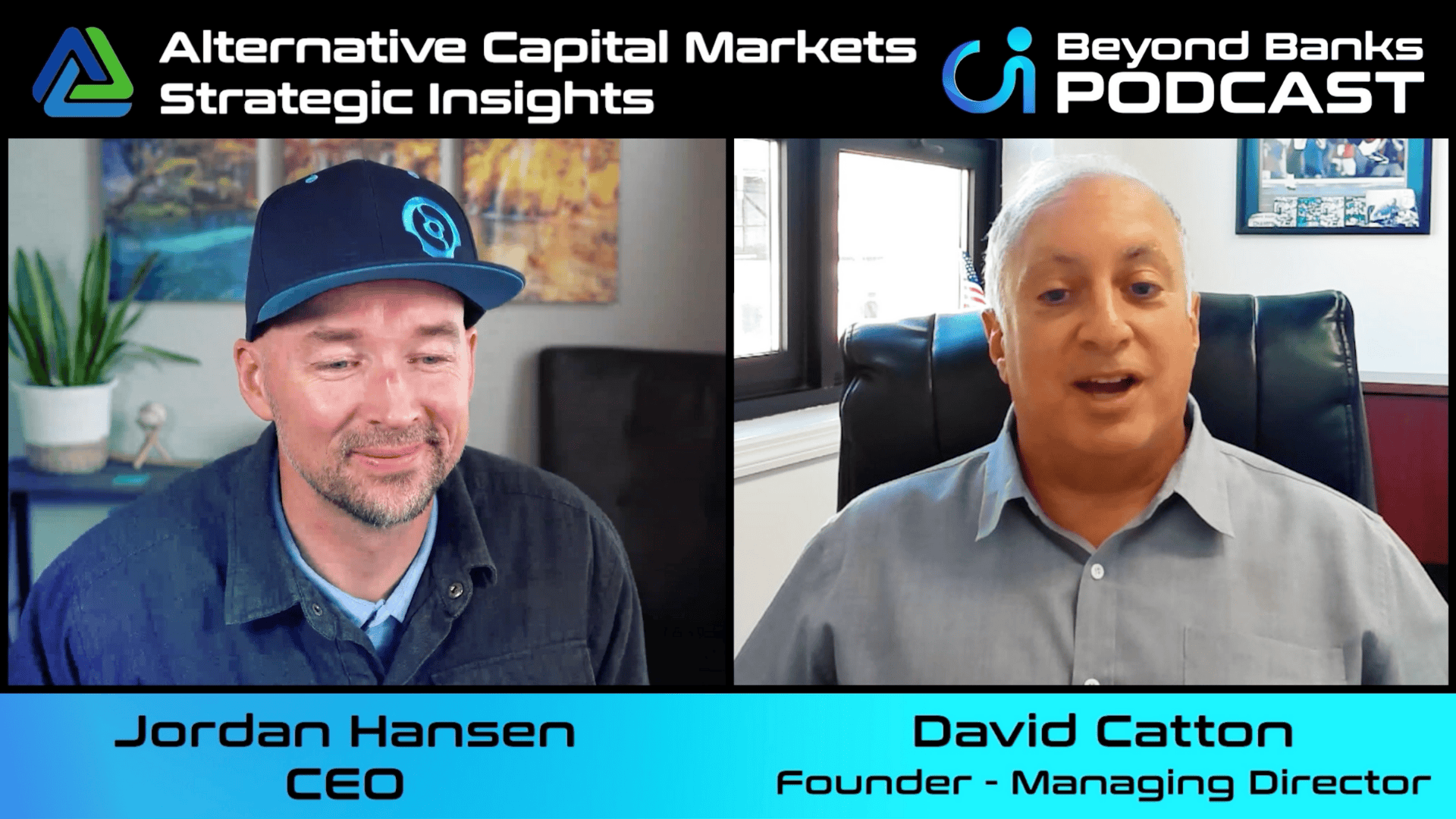
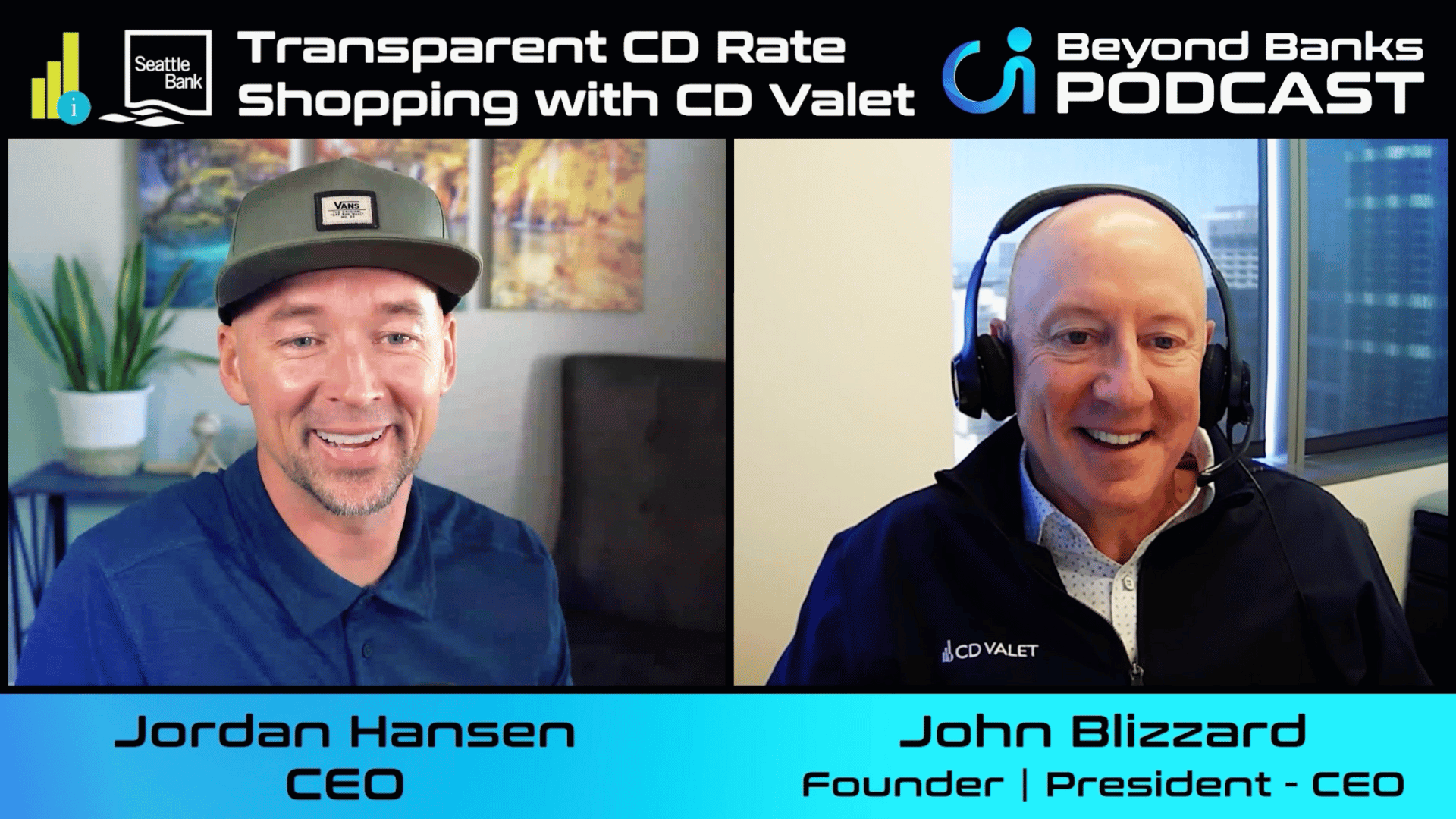


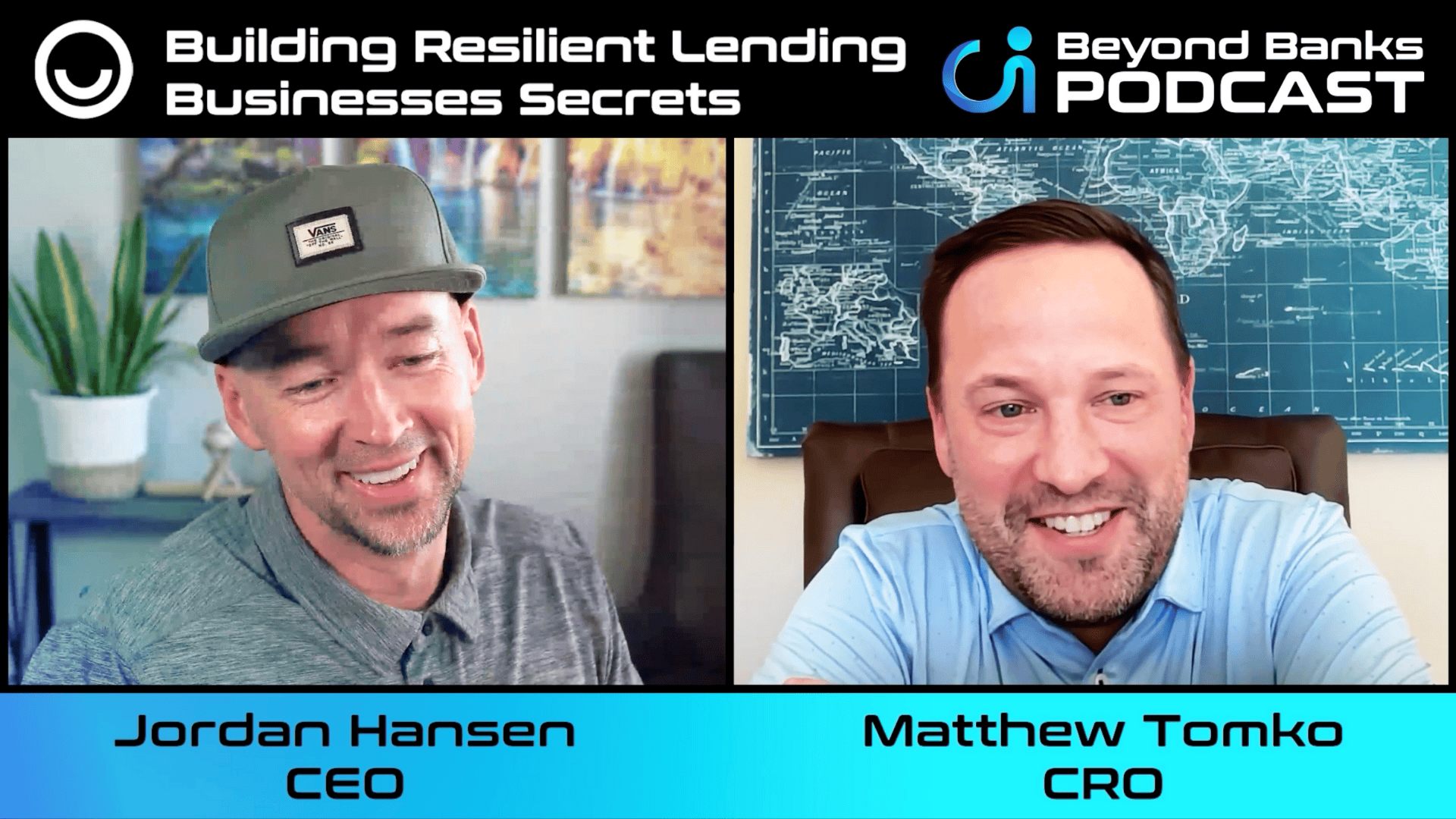

.png)
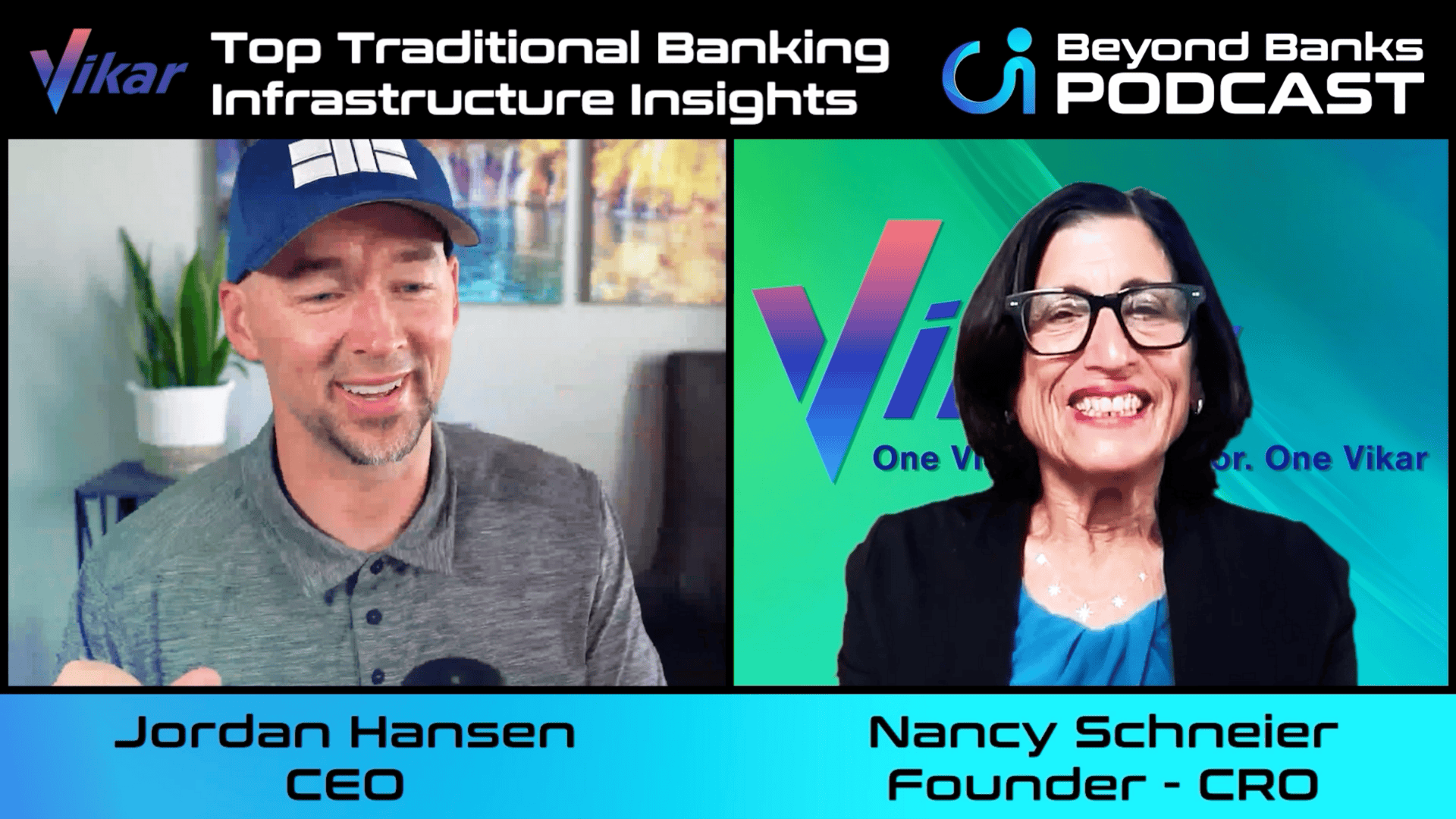
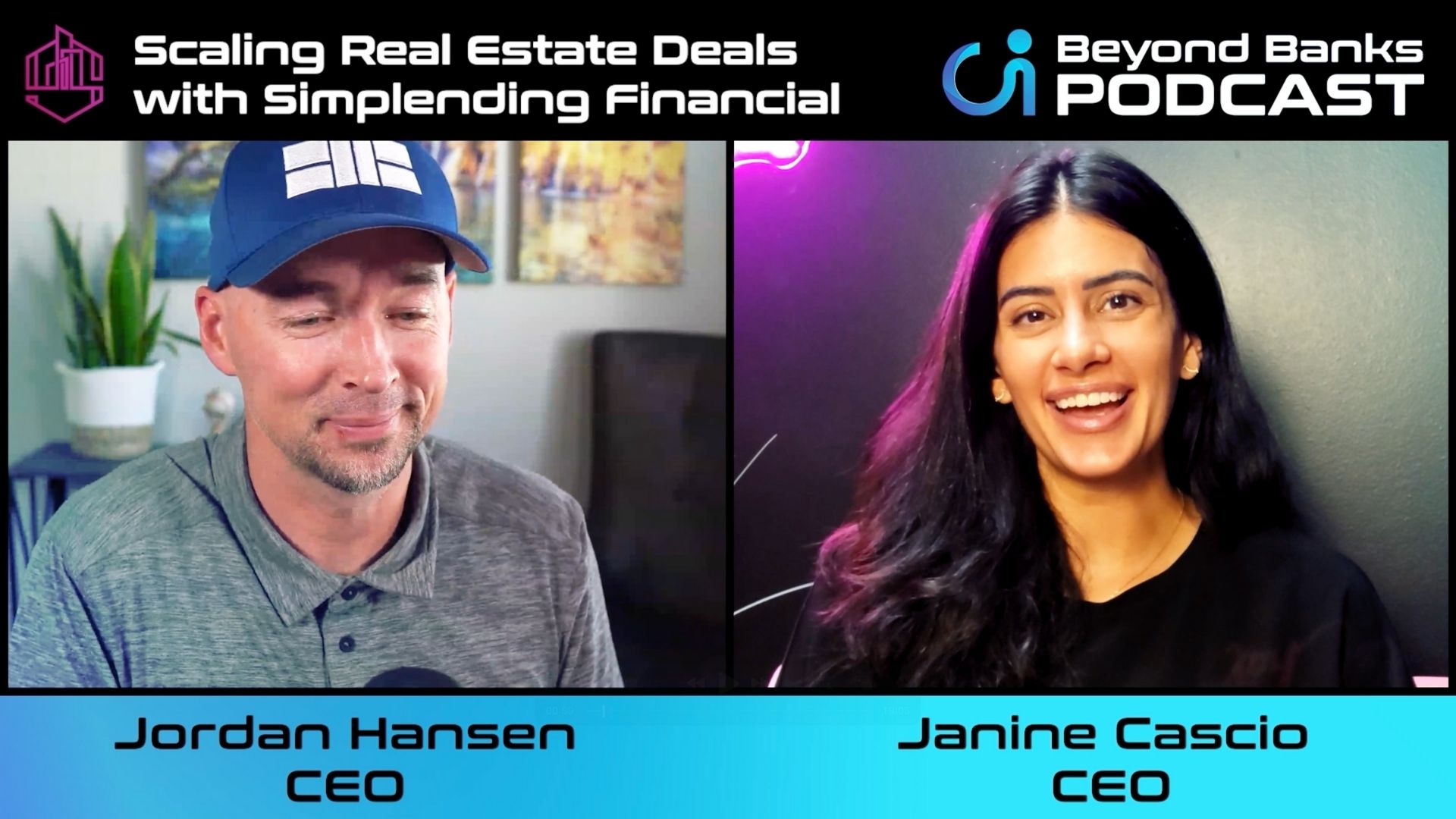
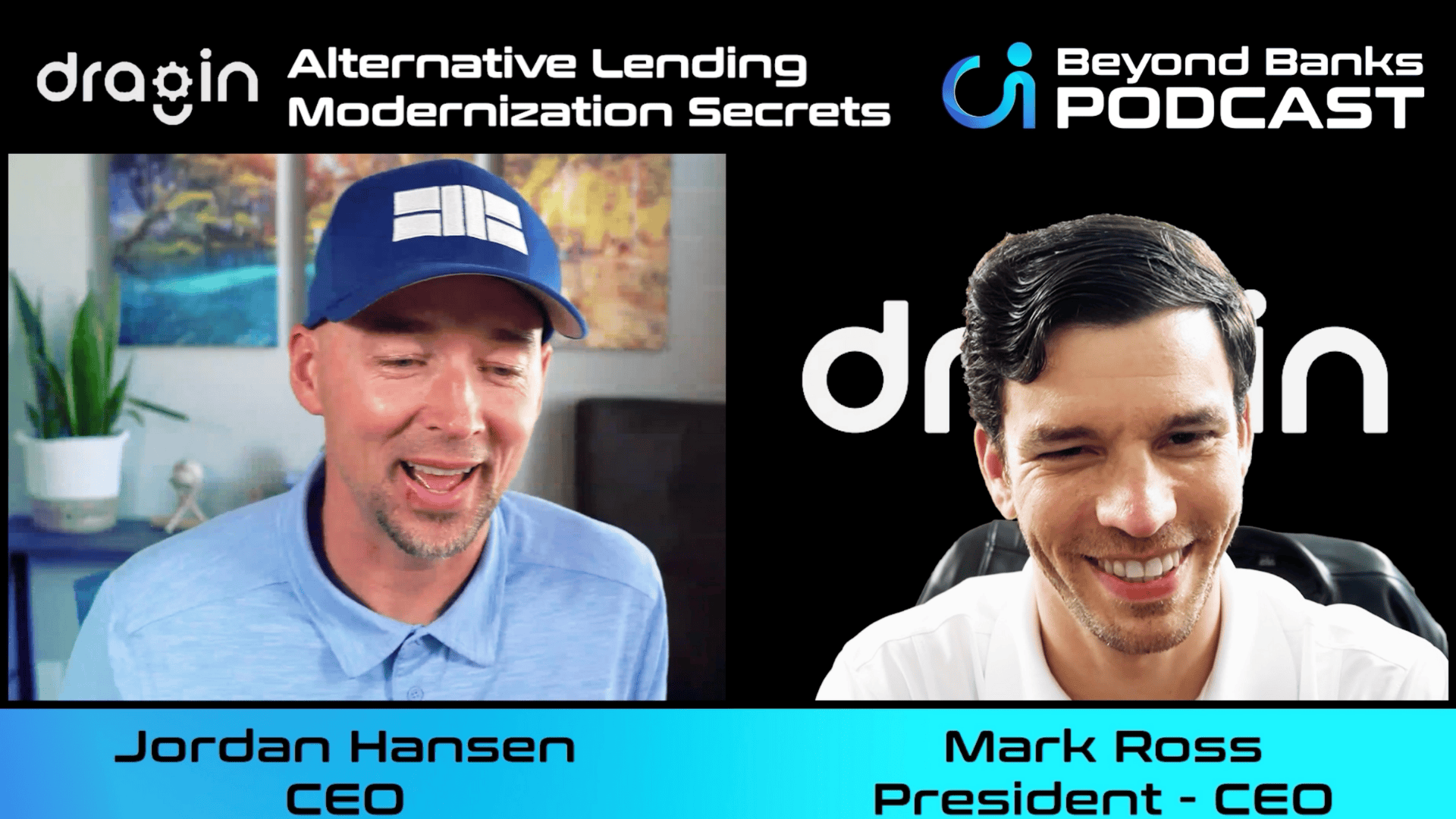
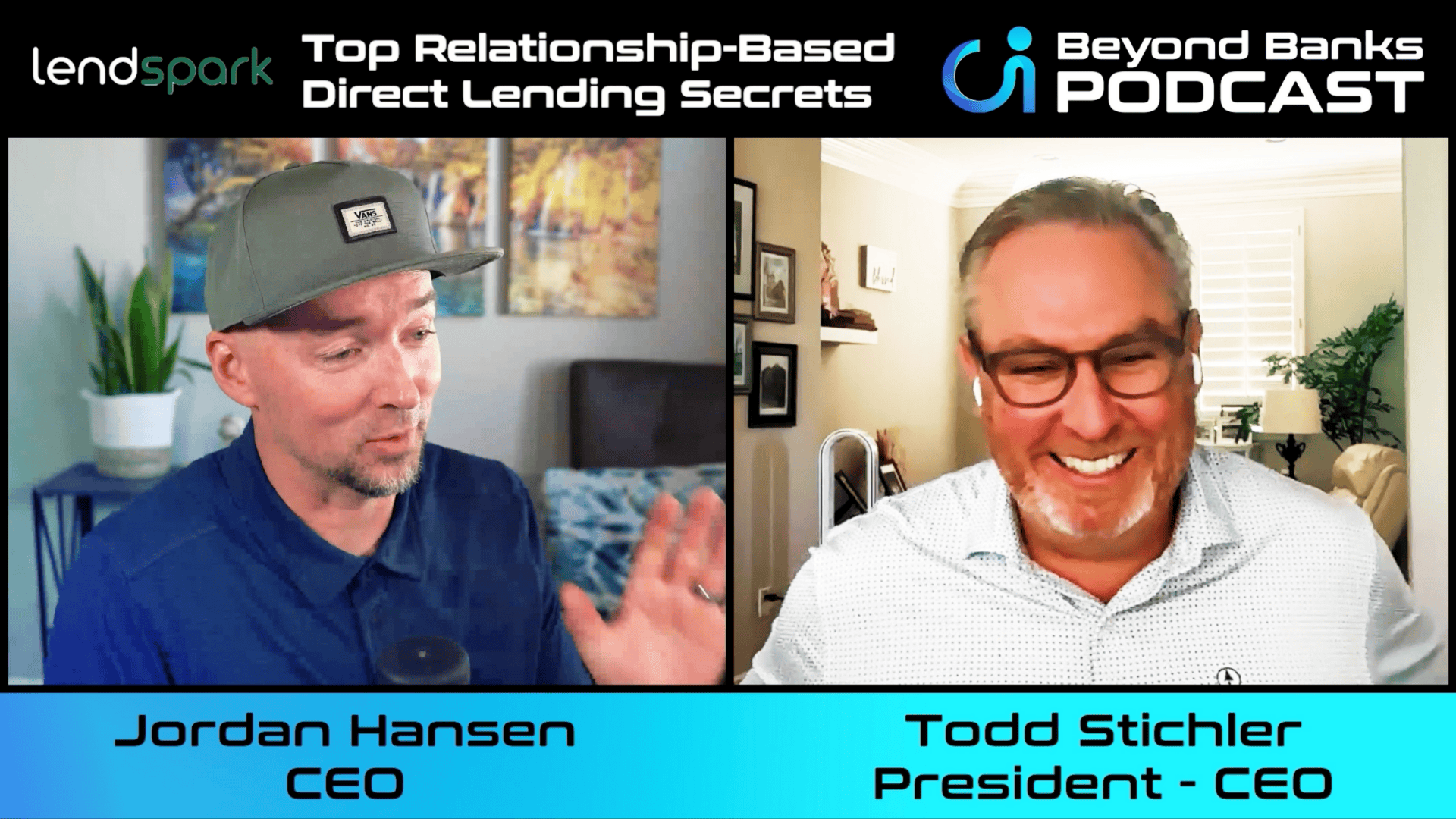
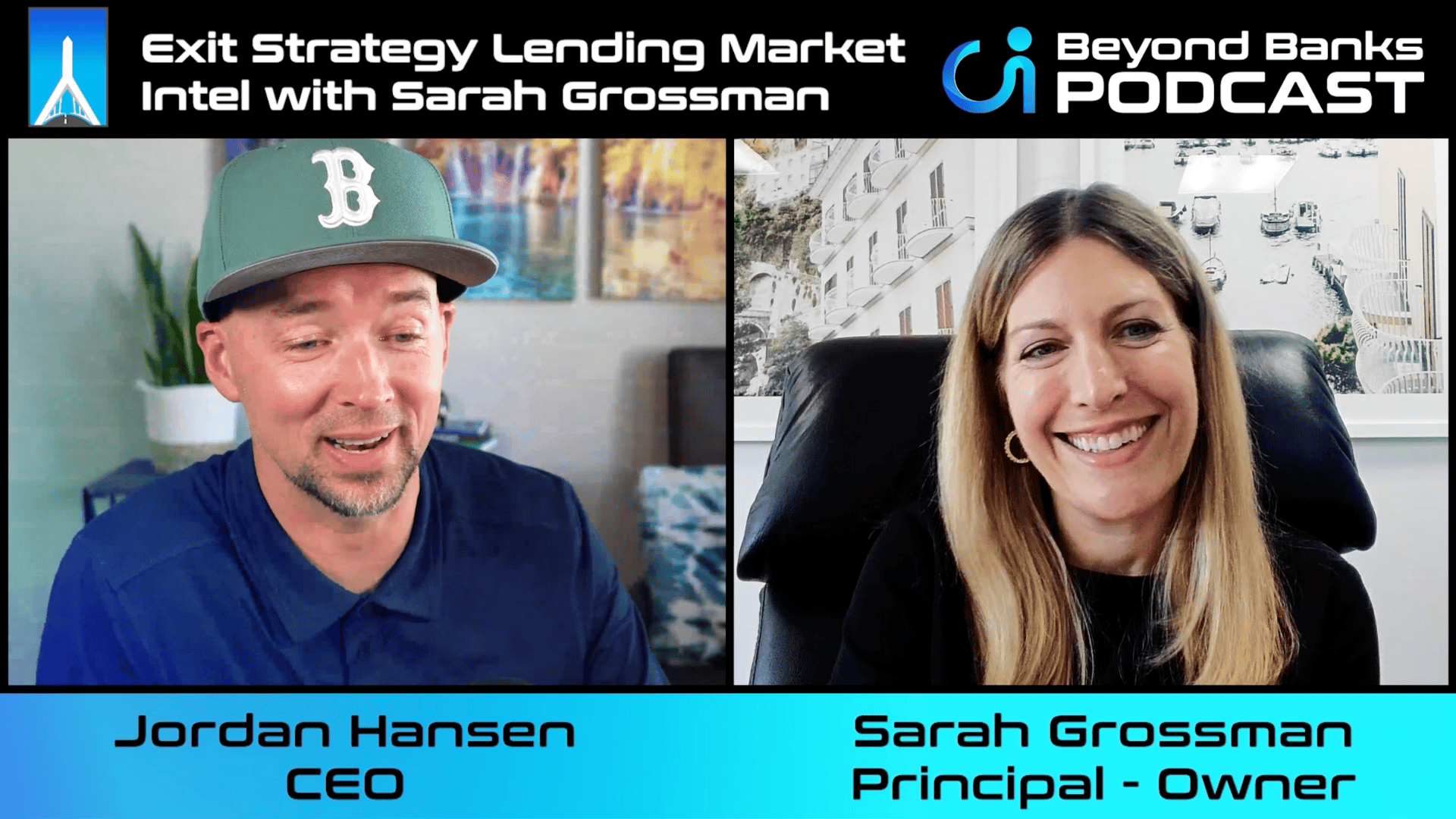
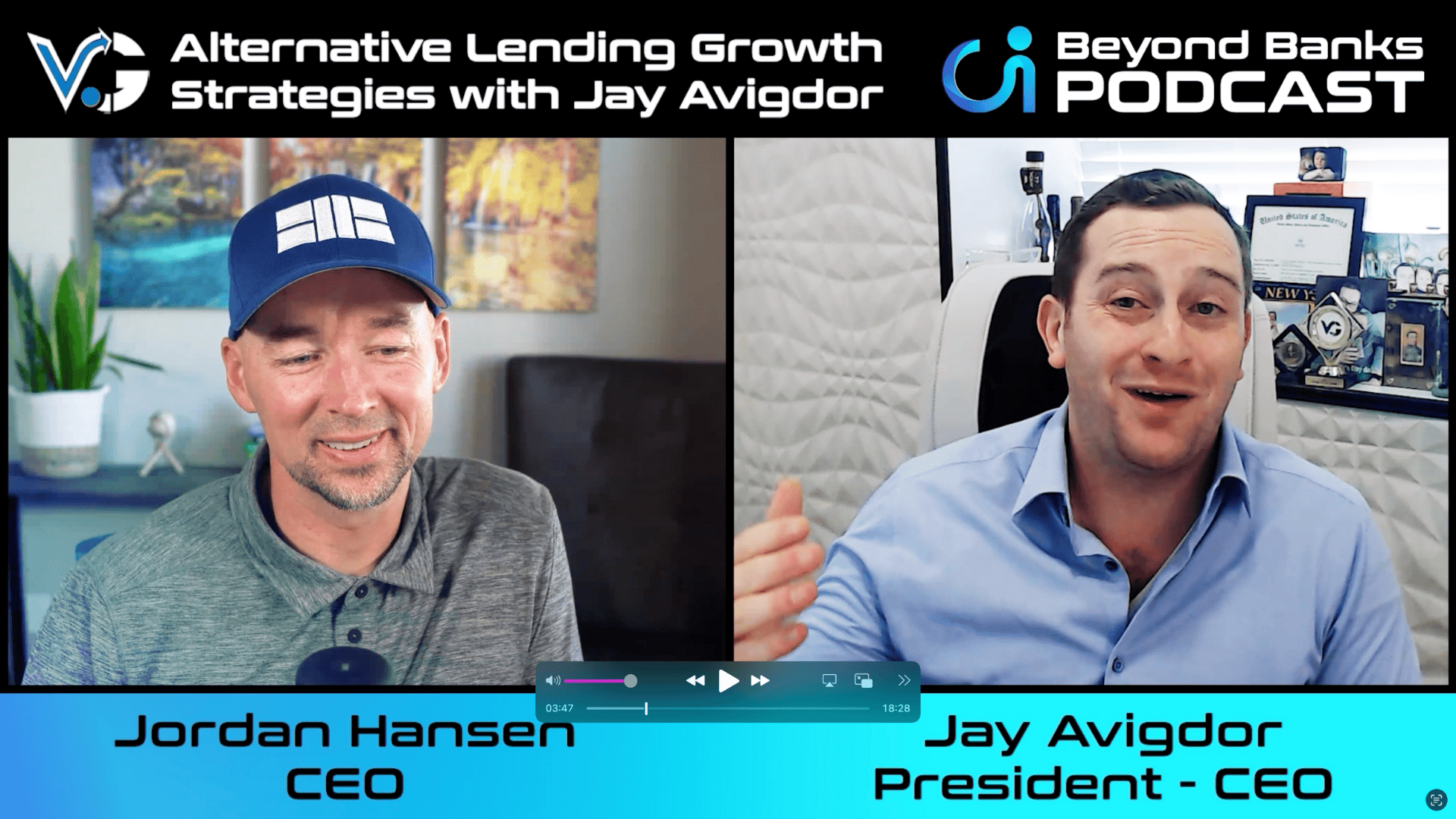
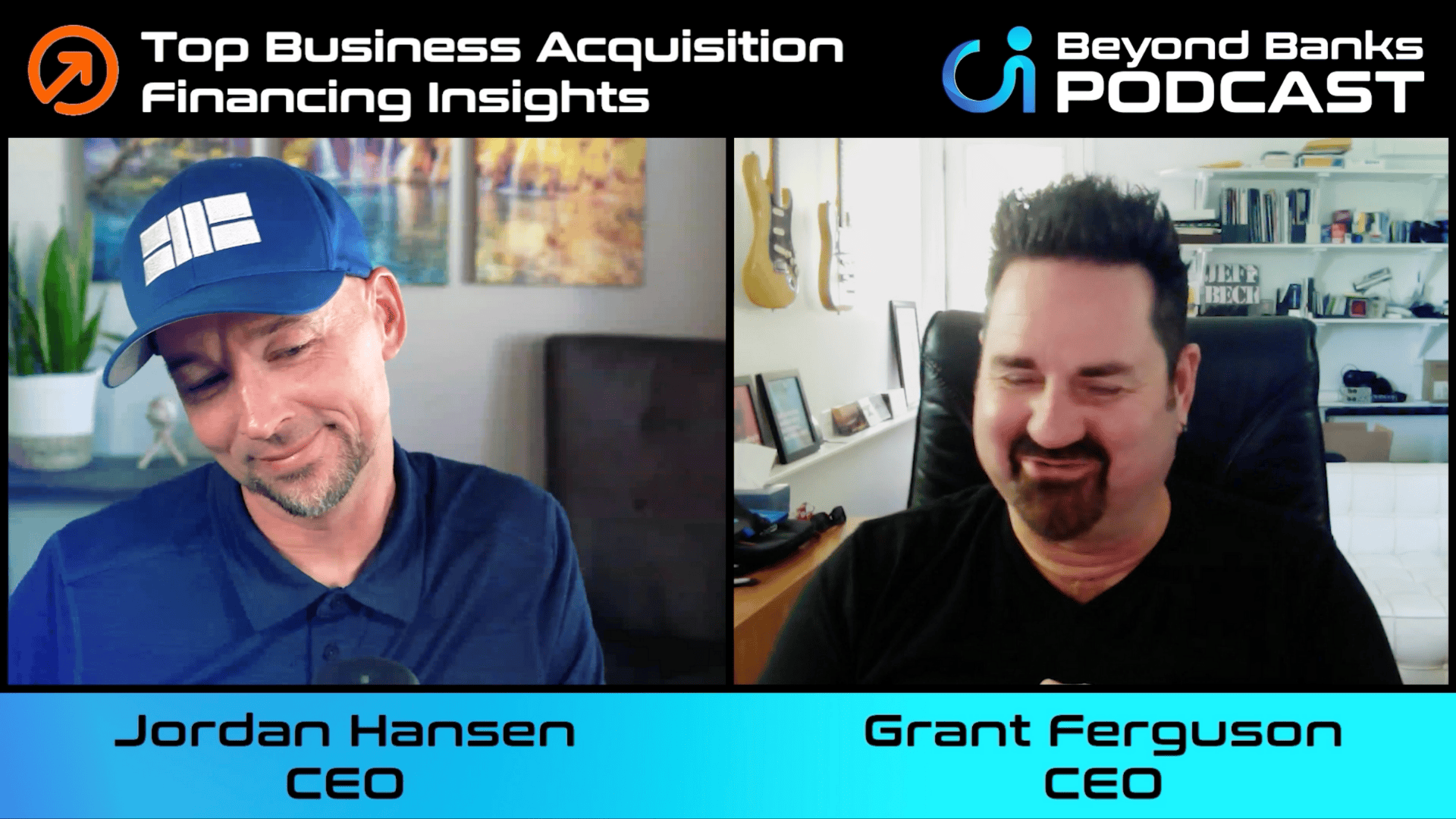
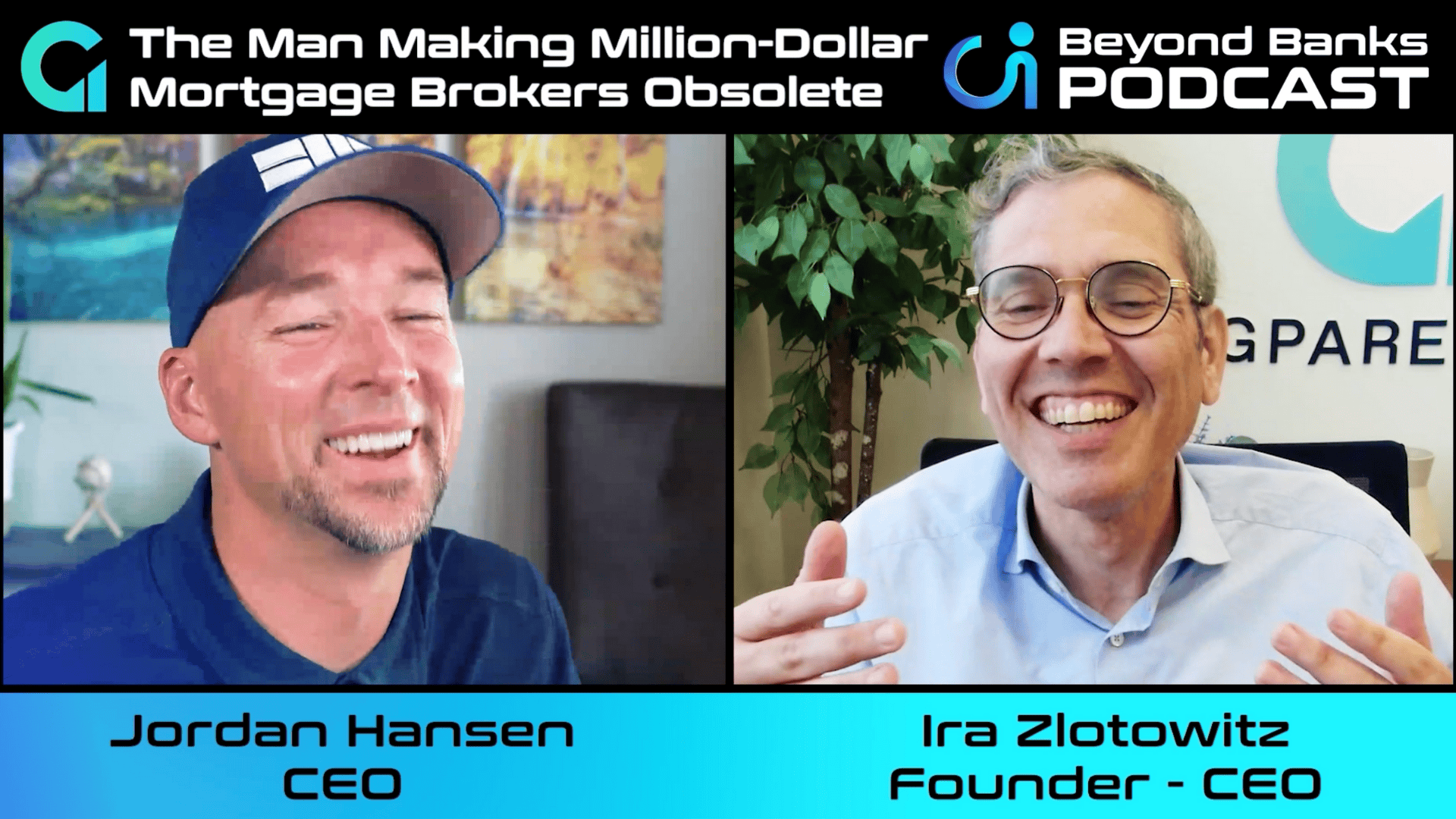
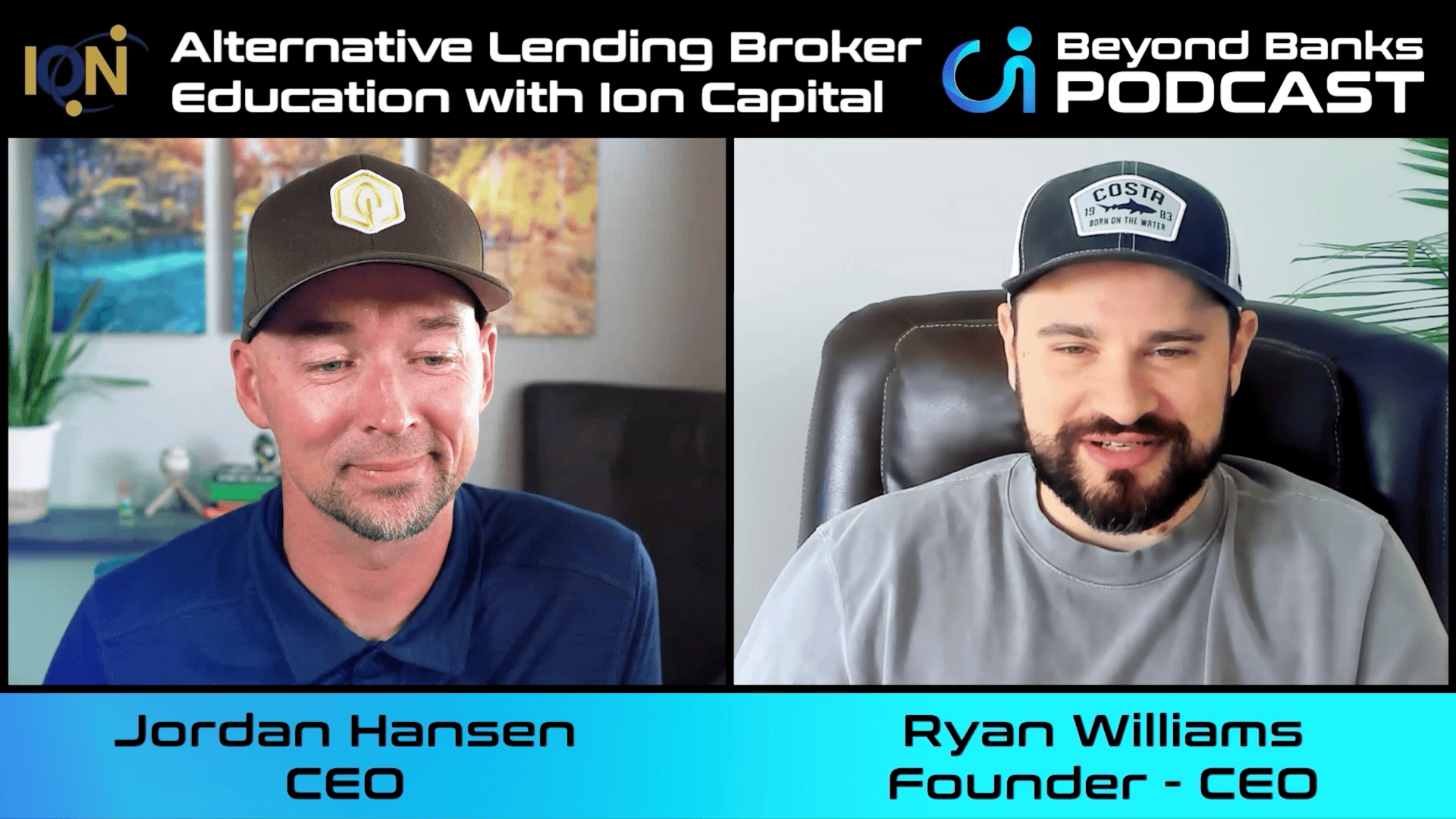
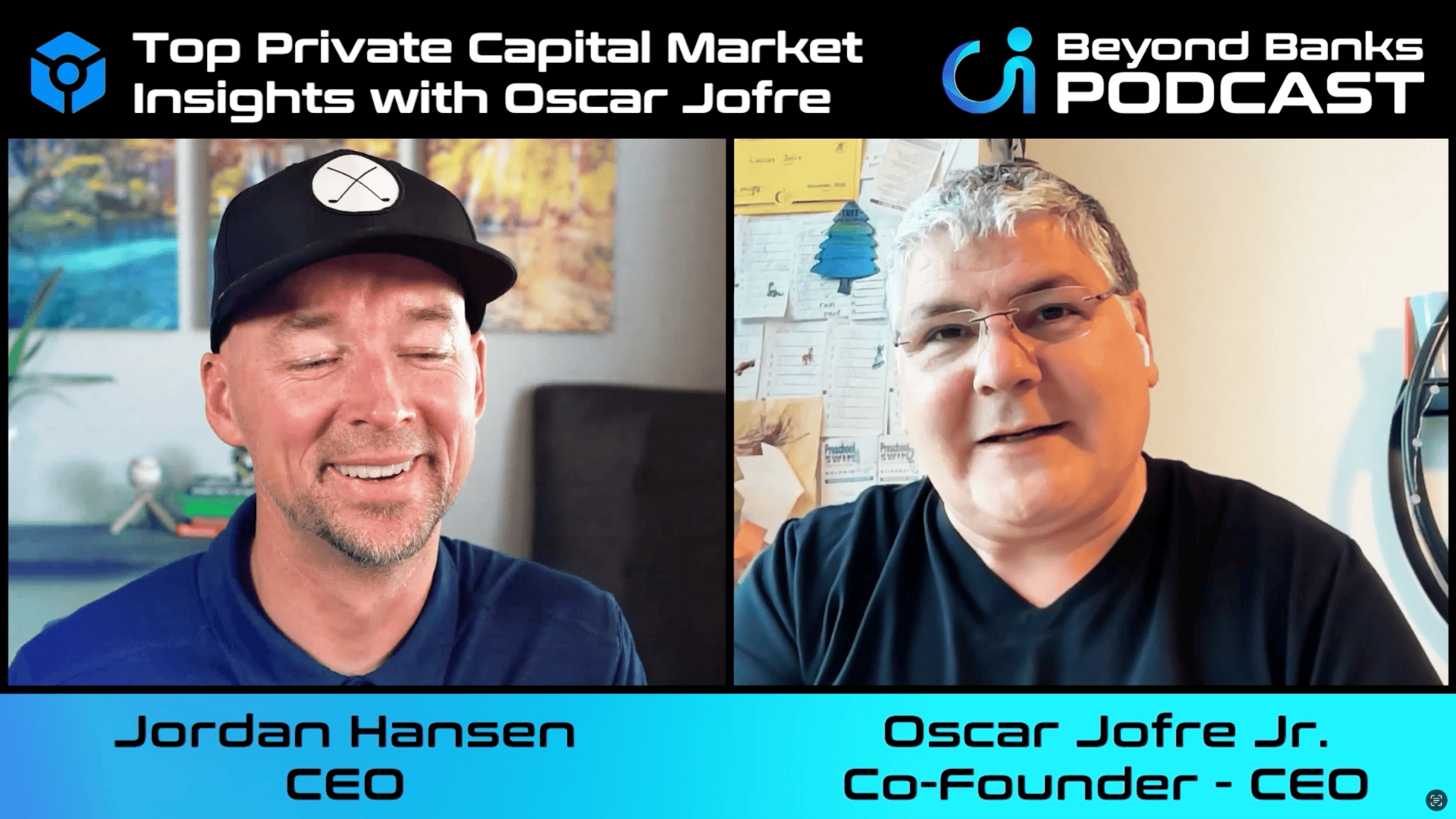

















.png)